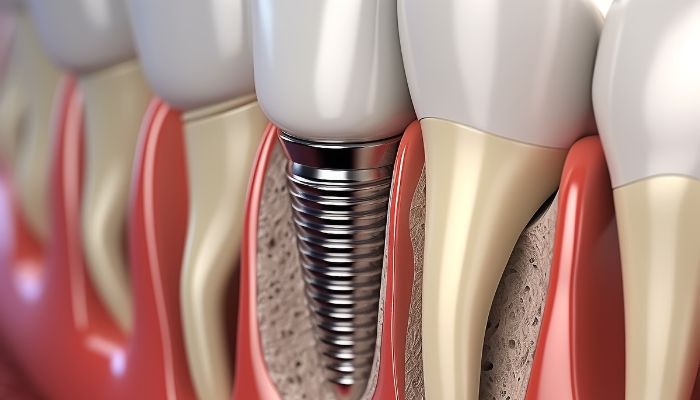If you’ve been thinking about getting dental implants but can’t shake off the nagging question, “Will it hurt?”, you’re not alone. The thought of any dental procedure can feel a little intimidating, especially one that involves implants. Don’t worry—I’ve got you covered with all the info you need to decide if dental implants are right for you (and spoiler alert: it’s probably not as bad as you think!).
Let’s break this down step-by-step, get rid of the mystery, and maybe even calm those nerves a little.
What Are Dental Implants, Anyway?
Before we get to the nitty-gritty of pain (or the lack thereof), let’s talk about what dental implants actually are. In simple terms, dental implants are small, screw-like titanium posts that are surgically placed into your jawbone. These act as artificial tooth roots to support crowns, bridges, or dentures.
The idea might sound super high-tech (or slightly terrifying), but implants have been around for decades and are considered one of the most effective, long-lasting solutions for missing teeth.
Does Getting Dental Implants Hurt During the Procedure?
Here’s the short answer: No, you’re not going to feel pain during the procedure itself. Why? Because you’ll be under local anesthesia or, in some cases, sedation.
- Local Anesthesia: Your dentist will numb the area around where the implant will be placed. Once the anesthesia kicks in, you won’t feel anything but maybe a little pressure or vibration as they work.
- Sedation Options: For those who feel anxious about dental work, some dentists offer additional sedation options, like IV sedation or nitrous oxide (aka laughing gas), which can make you feel relaxed—or even like you’re floating through the whole thing.
The most you’ll feel during the procedure is some light pressure, but pain? Not so much. Most patients are surprised by how easy the process is compared to what they expected.
How About After the Procedure?
Okay, so the anesthesia will wear off eventually—what happens then? Will you be clutching your jaw in agony for days? Thankfully, the post-surgery discomfort is usually pretty mild and manageable.
Here’s what you can typically expect:
- Soreness and Swelling:
It’s normal to feel some soreness, swelling, or tenderness in your gums and jaw for a few days after the procedure. It’s similar to what you might experience after having a tooth pulled. - Pain Level:
The pain level varies from person to person, but most people describe it as mild to moderate. Think of it more as an ache rather than sharp, unbearable pain. - Recovery Timeline:
The first 24–48 hours are when discomfort is most noticeable, but things should improve significantly after that. By day three or four, you’ll probably feel much better, and some people are back to their normal routines within a few days.
How Do You Manage Pain After Dental Implants?
Let’s be real—any surgery comes with some level of discomfort. But managing it doesn’t have to be a big deal. Here are some tried-and-true ways to keep post-implant pain under control:
- Over-the-Counter Painkillers: Medications like ibuprofen (Advil) or acetaminophen (Tylenol) work wonders for reducing pain and inflammation.
- Ice Packs: Applying ice to the outside of your cheek can help reduce swelling during the first 24 hours. Pro tip: wrap the ice pack in a soft cloth to avoid freezing your skin.
- Soft Foods: Stick to soft, easy-to-chew foods like soup, yogurt, mashed potatoes, or smoothies for a few days. This avoids putting pressure on the implant site.
- Saltwater Rinses: Gently rinsing your mouth with warm saltwater can help keep the area clean and speed up healing.
Your dentist will also give you detailed post-op instructions tailored to your needs—so be sure to follow those closely!
What If the Pain Feels Unusual?
Pain is a part of healing, but if it feels excessive or lasts longer than a week, it’s worth checking in with your dentist. In rare cases, prolonged pain could indicate an infection or other complication. Signs to watch out for include:
- Persistent, sharp pain
- Swelling that worsens after a few days
- Fever or chills
- Pus or discharge from the implant site
The good news? These issues are pretty rare. Dental implants have a success rate of over 95%, so chances are, you’ll heal up without any problems.
So, Do Dental Implants Hurt in the Long Run?
Here’s the cool thing about dental implants: Once the healing process is complete, they feel just like your natural teeth. There’s no lingering pain, no discomfort, and you don’t even notice them.
In fact, many patients say they forget they even have implants because they’re so comfortable and seamless. Unlike dentures, there’s no slipping or clicking. And unlike bridges, there’s no extra pressure on your surrounding teeth.
Why Are Dental Implants Worth It?
Sure, the idea of surgery might sound daunting, but when you weigh that against the benefits of dental implants, the short-term discomfort feels like a small price to pay.
Here’s why so many people choose implants:
- Longevity: Implants can last 15+ years (or even a lifetime) with proper care.
- Natural Look and Feel: They look just like real teeth and stay in place permanently.
- Improved Confidence: No more worrying about gaps in your smile or dealing with dentures that don’t fit right.
- Better Oral Health: Implants help prevent bone loss in your jaw and don’t require altering healthy teeth like bridges do.
Final Thoughts: Should You Be Afraid of Dental Implants?
The truth is, getting dental implants isn’t as scary or painful as you might think. Thanks to modern dental technology, the procedure is precise, safe, and surprisingly comfortable. While some soreness afterward is expected, it’s manageable with the right care and medications.
If you’ve been putting off implants because of fear, don’t let the “what-ifs” hold you back! Talk to your dentist, ask questions, and be open about your concerns. A good dentist will guide you through the process step by step—and you might just find that it’s way easier (and less painful) than you ever imagined.
So, what do you think? Ready to ditch the worries and embrace a healthier, more confident smile? You’ve got this!


